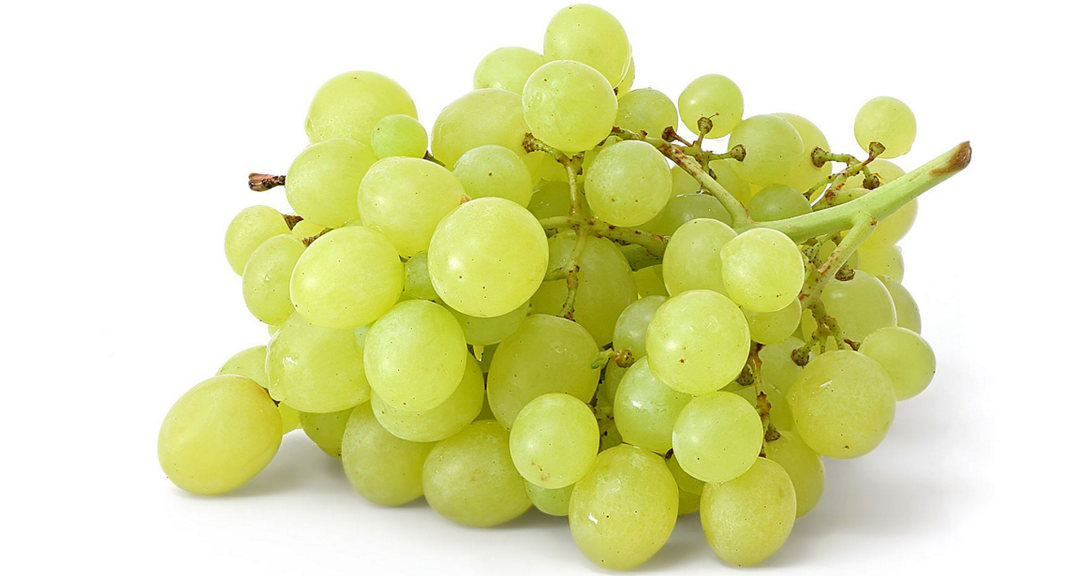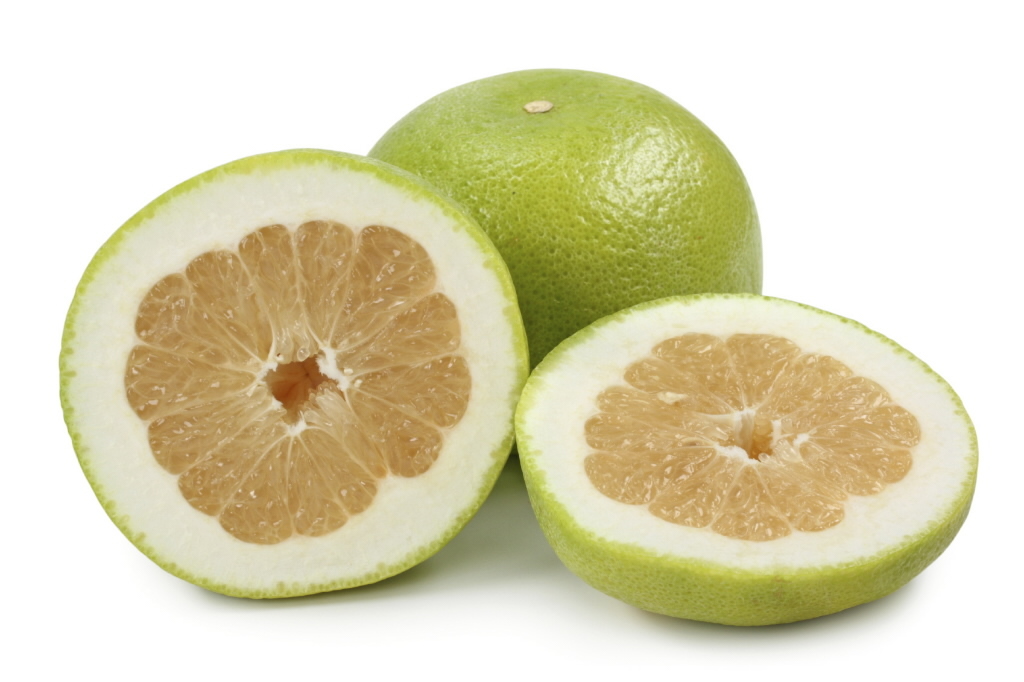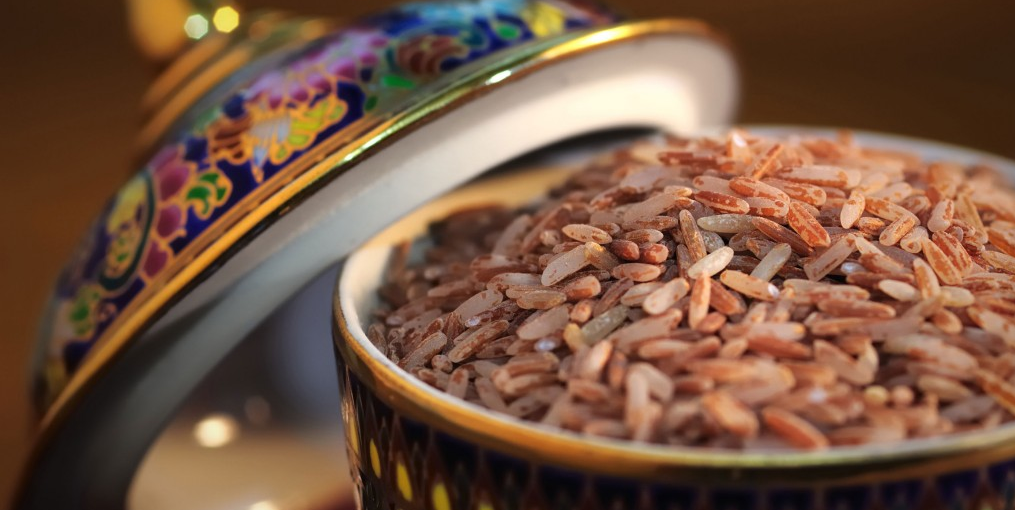Eggplant: benefit and harm
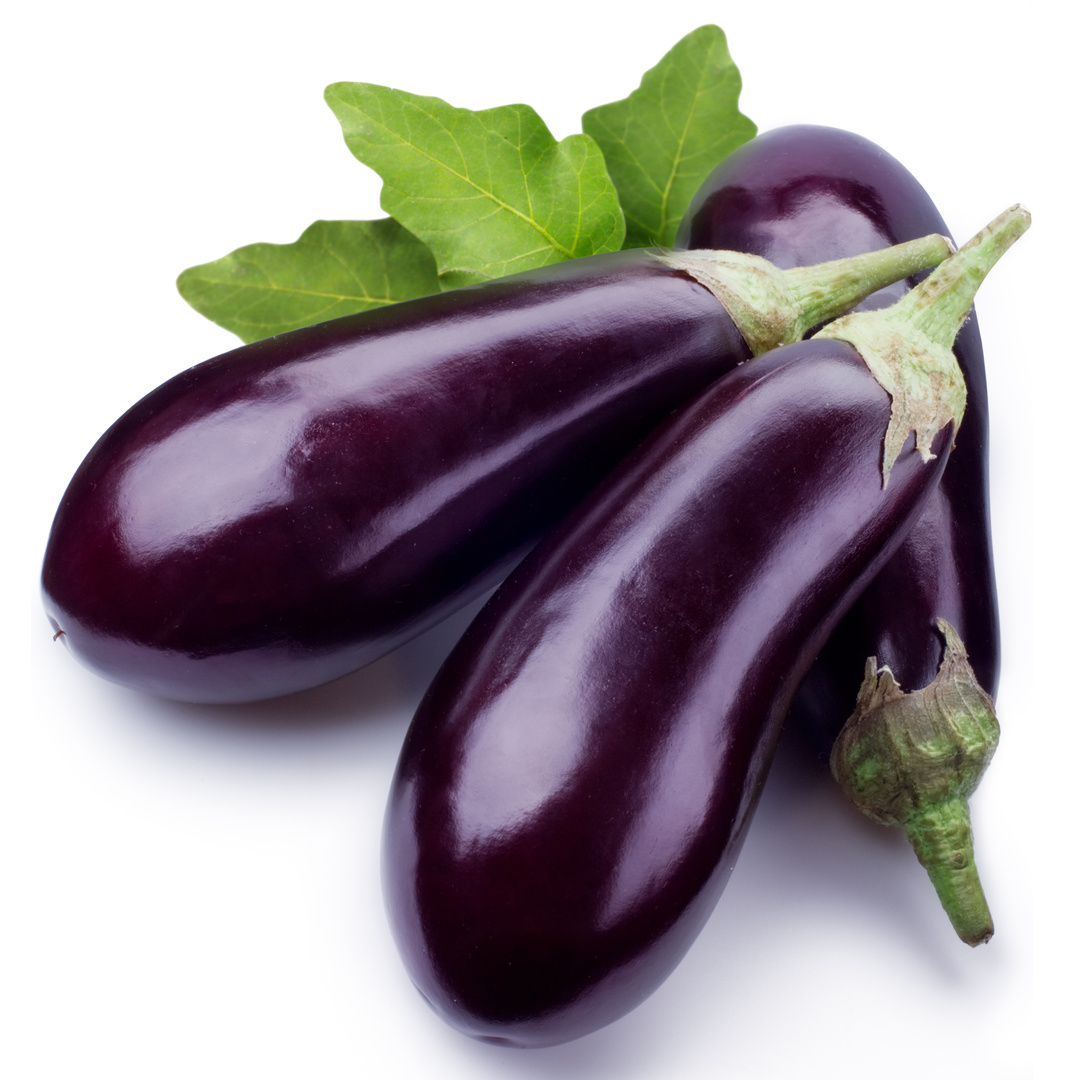
Eggplant belongs to a large group of perennial plants of the Paslen genus.This vegetable culture, but it is correct to call the eggplant a berry, although many scientists attribute it to a vegetable culture - no unequivocal decision was made, therefore, eggplant is often called a vegetable in documentary materials, in cooking recipes, and in colloquial speech.
The aubergine is known to mankind for more than two millennia - earlier it grew in the wild in Central Asia, but 1500 years ago it was cultivated in China.And this delicious and healthy vegetable was distributed by the Arabs who brought it to the Mediterranean.As a result of long "wanderings" the eggplant appeared on the territory of Eurasia only at the beginning of the 18th century and became widely used in the South Russian provinces.
Often the eggplant is called "blue", but this is not entirely true - there are several dozen types of this vegetable, which have a variable coloration( from dark purple to white).And even if we take as a basis the classical appearance of the described vegetable culture, it can not be said that it has a blue color - the eggplant at the very beginning of its maturation has a light purple color, then it darkens, and the over-ripe vegetables have a brown-yellow color.
Eggplant: caloric content, chemical composition
Nutritional value of 100 g:
- Caloric content: 24 kcal Protein
- : 1.2 c
- Fats 0.1 Carbohydrates
- c 4,5 c
Display a list »
- Dietary fiber: 2.5 g
- Organic acids: 0.2 g
- Water: 91 c
- Mono- and disaccharides: 3.6 c
- Starch: 09 g
- Ash: 0.5 g
- Calcium: 15 mg
- Magnesium: 9 mg
- Nutry:
- 6 mg Potassium 238 mg Phosphorous
- : 34 mg
- Chlorine: 47 mg
- Sera: 15 mg
Vitamins:
- Vitamin PP: 0,6 mg
- Beta-carotene: 0.02 mg
- Vitamin A( RE): 3 μg
- Vitamin B1( thiamin): 0.04 mg
- Vitamin B2( riboflavin): 0.05 mg
- Vitamin B6( pyridoxine): 0.2
- mg Vitamin B9( folic): 18.5 g
- Vitamin C: 5 mg
- Vitamin E( FE): 0.1 mg
- Vitamin PP( niacin equivalent): 0.8 mg
Microelements:
- 0.4
- mg Zinc 0.29 mg Iodine
- 2
- Copper mcg 135 mcg
- Manganese: 0.21 mg
- Fluoro 14
- mcg Molybdenum 10 mcg
- Boron: 100g
- Cobalt 1 ug
- Aluminum: 815 mcg
note: most useful are considered "young", neperezrevshie fruits vegetables - they contain pectin and fiber, which improves digestion, phenolic compounds, normalize blood circulation and manganese, Stimulating the production of insulin, thereby reducing the level of sugar inRovi.
Eggplant: unreasoned use
The benefits of this vegetable are well known to physicians of different directions - it is recommended to include in dietary food, eat once a day for people with cardiovascular diseases, fall in love with those who care about the general level of their own health.Eggplant can and should be consumed not only with certain specific diseases, but also as a preventive agent - it is known that this vegetable helps to lower the level of cholesterol and sugar in the blood, normalize blood circulation and strengthen the walls of blood vessels.
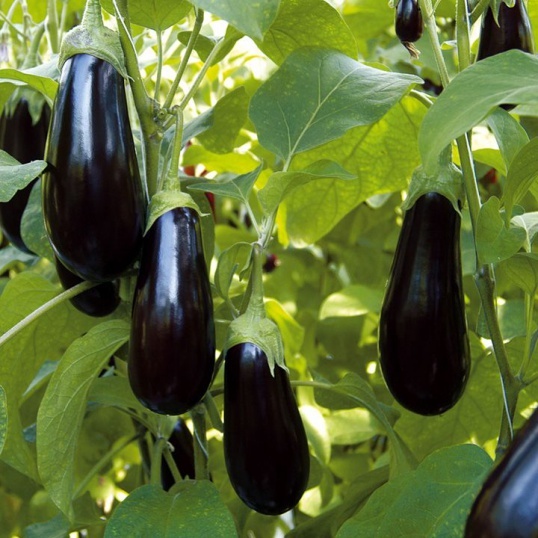 Useful properties of aubergines :
Useful properties of aubergines :
- normalizes water exchange;
- improves the functioning of the heart muscle;
- derive salts of uric acid;
- restores and normalizes the functioning of the liver and kidneys;
- reduce the concentration of cholesterol in the blood;
- stimulates digestion.
Eggplant juice can be applied externally - it helps to accelerate the healing of wounds and burns, and if people with diagnosed gastritis or peptic ulcer of the stomach and duodenum drink half a glass of juice of the described vegetable once a day, their condition quickly normalizes, the number of exacerbations of chronic pathologies will decrease.
Eggplant: do no harm
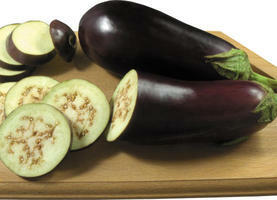 Despite the numerous useful properties of eggplant, it is worth knowing that at a certain stage of growth of this vegetable, a large amount of solanine accumulates in it - this substance is considered toxic to the human body.We are talking about overripe fruits - they not only contain large seeds and have a "wadded" structure, but also cause nausea, vomiting, dizziness and other signs of intoxication of the body.
Despite the numerous useful properties of eggplant, it is worth knowing that at a certain stage of growth of this vegetable, a large amount of solanine accumulates in it - this substance is considered toxic to the human body.We are talking about overripe fruits - they not only contain large seeds and have a "wadded" structure, but also cause nausea, vomiting, dizziness and other signs of intoxication of the body.
But there is also a wonderful "news" - it's quite possible to get rid of solanine.It is enough only to cut the ripened vegetable into pieces and pour salt, leaving for 10-15 minutes.During this time, most of the harmful substance from the eggplant "will go away."And then it can be cooked in the usual way, only you need to wash the eggplant slices from excess salt.
Rules for the selection and storage of eggplant
To make the eggplant really beneficial, you need to know the rules for choosing a vegetable for cooking. Attention should be paid to :
- the degree of maturity of the vegetable - it should be uniform in color, which is inherent in a particular kind of product, and without brown spots;
- prescription of fetting the flesh - the eggplant skin should not be wrinkled and dry, and the stalk should not be brown.
You can store the described vegetable in many ways - it is marinated, salted, brewed and frosted.The most remarkable is that even after aggressive heat treatment the eggplant practically does not lose its useful properties - the maximum loss is 40%.
Rules for processing aubergines
Eggplants have one very unpleasant feature - when frying they absorb too much vegetable oil, which automatically reduces its benefits.In order to prevent this "development of events", it is enough to soak eggplant bars before roasting in water - the porous structure of their pulp absorbs any liquid, and water will prevent the passage of fat into the product.
If aubergines are consumed by people with cardiovascular diseases, then you should give preference to boiled vegetables - they are placed in boiling water and boiled for 10 minutes.To improve the taste of the product, you can clean the already cooked eggplant from the skin, and add the vegetable oil and a little lemon juice to the remaining pulp.
It is believed that the most useful are stewed eggplants.They are perfectly combined with carrots, onions and sweet peppers - this will not only improve the taste of the described vegetable, but also add vitamins / trace elements to the ready-made dish.
 Eggplant is a versatile vegetable that has no contraindications to eating.Even pregnant women can safely enter this product in the daily menu - it will strengthen immunity, improve blood circulation and will have a beneficial effect on the functioning of the heart muscle.The breastfeeding woman can also use eggplants, but with one clarification: if she has never ate the vegetable during the period of bearing the child, then it will be necessary to follow the child's reaction to the "innovation" - in rare cases an allergic reaction may appear.
Eggplant is a versatile vegetable that has no contraindications to eating.Even pregnant women can safely enter this product in the daily menu - it will strengthen immunity, improve blood circulation and will have a beneficial effect on the functioning of the heart muscle.The breastfeeding woman can also use eggplants, but with one clarification: if she has never ate the vegetable during the period of bearing the child, then it will be necessary to follow the child's reaction to the "innovation" - in rare cases an allergic reaction may appear.

